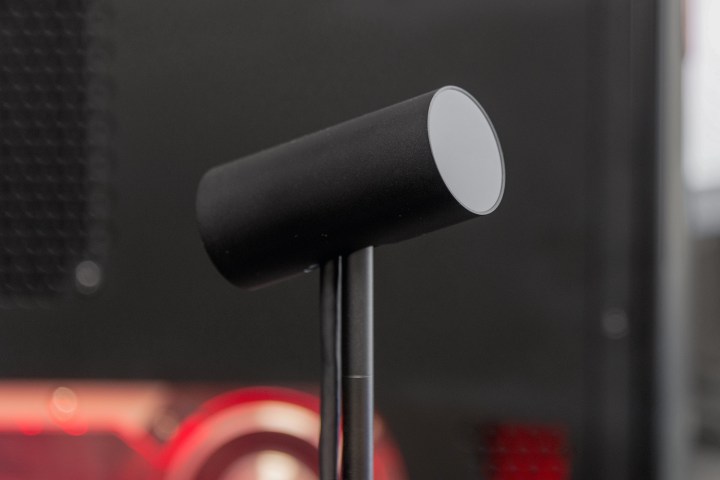
While the stand and visible light filter are removable and replaceable, the main components, despite being modular, are apparently difficult to access. Even more, if owners want to access the internal components, they will most likely destroy the outer housing. Owners can’t even swap out the USB 3.0 cable without having to take apart the entire assembly.
To break into the Constellation, iFixit used a rotary tool, a Jimmy knife, an iOpener (a tablet-opening tool), a spudger (an anti-static tool), and a Philips #0 screwdriver. The Constellation device itself only has three visible parts as a whole: the infrared sensor, the stand, and the USB 3.0 cable. However, the site was able to disassemble the entire package — internal components included — in a mere six steps.
After removing the infrared sensor from the stand, iFixit detached the back panel by simply popping it off. With that leading to nowhere, the site instead attacked the other end (the visible-light filter) with the iOpener tool and a suction cup, revealing the actual camera’s eye. The filter, the site explains, blocks out everything but IR so that the eye can track the Rift’s built-in IR LEDs.
“The visible light filter restricts the light coming in to the image sensor to the IR spectrum, meaning the IR LEDs on the headband will shine bright like stars,” iFixit states. The site actually took the IR camera outside and placed the visible-light filter back on to get a glimpse at what the camera sees in downtown San Luis Obispo, California.
Next, iFixit used the rotary tool to remove the outer casing. Inside the site discovered an inner shell secured by “fiercely glued” screws. Once this was ripped off, iFixit had access to the internal components including the motherboard and camera. The camera was thus removed from the motherboard, the heatsink was removed from the camera, and then the lens was removed from the image sensor.
What iFixit found at the root of the Constellation was an EtronTech eSP770U webcam controller and a Nordic Semiconductor nRF51822 Bluetooth Smart and 2.4GHz proprietary chip, the same chip that’s used in the Oculus Rift. The USB 3.0 cable is standard and replaceable, but iFixit admits it’s not sure how the end user repairing the device as a whole will put it all back together.
Once the teardown was finally complete and published, iFixit awarded the device a score of only one out of ten for repairability. The site then shared the link with Palmer Luckey. The Oculus VR founder seemed rather shocked in his response on Twitter:
Yikes, 1/10? You don’t have to dremel it open, guys, the guts slide out if you pull the stand hardware off! https://t.co/AyKNLz7tAS
— Palmer Luckey (@PalmerLuckey) April 6, 2016
So far there doesn’t seem to be any way to purchase an additional Oculus Constellation sensor although that may soon change. The Oculus Rift just launched back on March 28, and presently the Oculus Store seems to only serve up the Oculus Rift hardware bundle. That said, owners are faced either with a difficult repair regarding the Constellation, or with calling up customer support for technical help.
To see what we think about the Oculus Rift, check out our review here.


